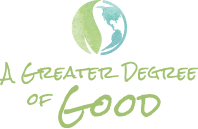
When it comes to finding new ways to better serve our planet and the people on it, Rheem works hard every day to create a more sustainable future.
It’s one reason why, in 2019, Rheem set out to achieve Zero Waste to Landfill (ZWTL) status by 2025 as part of its A Greater Degree of Good® initiative, targeting our manufacturing facilities across the world.
In the six years since then, Rheem has made big changes to its process and culture to achieve that goal, and as of 2024, all 18 global sites included in the initial launch has achieved ZWTL status—a year ahead of our goal.
“Congratulations to our global teams on the accomplishment of Zero Waste to Landfill! Sustainability is an ongoing commitment to conserve our resources and minimize our impact on the planet,” said Rheem Chief Operations Officer Alex Housten. “Designing out waste through innovation is not just the responsible thing to do; it’s good for business.”
Rheem’s approach to ZWTL goes beyond recycling—our team is embracing a systems redesign and addressing waste at its source.
A Rheem plant is considered to have reached Zero Waste to Landfill when it achieves a rate of at least 90% diversion of nonhazardous solid waste away from landfill, waste-to-energy (WTE), and incineration, in line with the Zero Waste International Alliance standards and TRUE Zero Waste standards.
At Rheem, this process starts with conducting an on-site waste audit of 24 hours’ worth of waste material. We then survey vendor partners to confirm waste collected, contamination rate, and final destination before completing a thorough on-site contamination walkthrough and waste bin location report.
For the next six consecutive months, the facility must maintain a 90% diversion rate. When that is achieved, facility leadership signs a letter confirming ZWTL and emphasizing its importance.
ZWTL is an ongoing effort and may look different depending on the facility.
At the Rheem Air Headquarters and Manufacturing Facility in Fort Smith, Arkansas, for example, ZWTL efforts have focused on reducing wood and pallet waste. New vendor partnerships were established to turn scrap wood into mulch and repair and reuse damaged pallets, along with improved signage to facilitate material sorting and continuous employee training.
Beyond maintaining and expanding ZWTL status among Rheem’s facilities, looking ahead, Rheem is also focused on reducing waste generated per product. Our goal is also to onboard any newly any newly acquired businesses to our Zero Waste to Landfill program, bringing them up to speed to establish the infrastructure and culture needed to meet and maintain ambitious diversion rates.
Tags

At Rheem, we strive to innovate
best-in-class products to lead the industry
in environmental improvements.
Sustainability

{{c.AddressLine1}}
{{c.City}}, {{c.State}} {{c.postalcode}}
Find a Rheem Pro